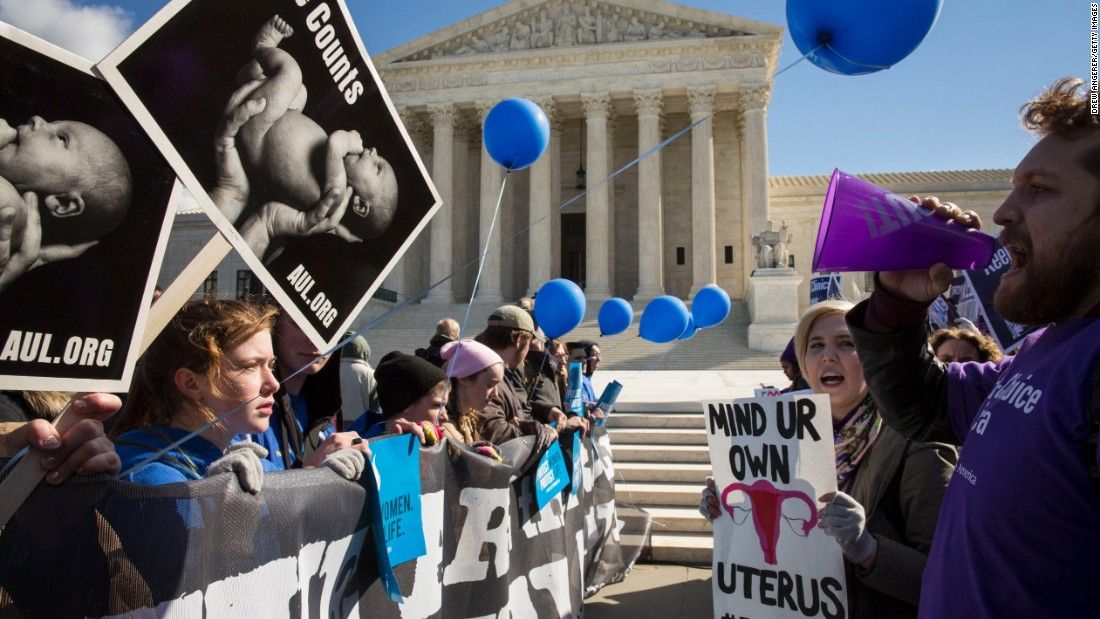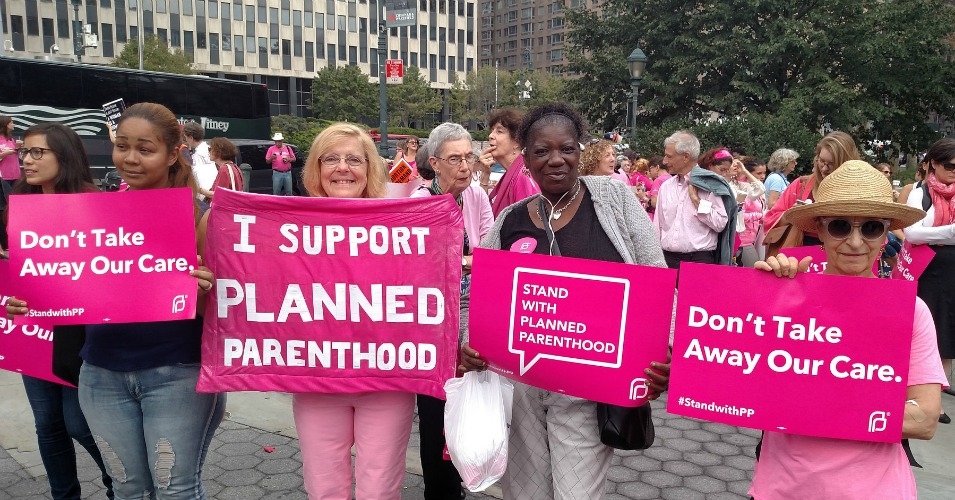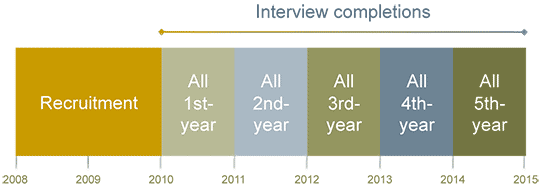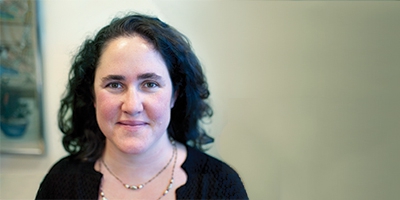Abortion in America: An Interview with Dr. Diana Foster, Director of the Turnaway Study

A few minutes every morning is all you need.
Stay up to date on the world's Headlines and Human Stories. It's fun, it's factual, it's fluff-free.
As legal battles over abortion in the United States continue to be waged on both the state and federal level, researchers are addressing a seemingly more straightforward question: Is abortion safe?
The opposing sides of the abortion divide often debate this question from an ideological point of view, but considerable research has been conducted regarding this matter.
The Turnaway Study: Background
In a groundbreaking study published in 2016, a research team led by Dr. Diana Foster examined “the effects of unintended pregnancy on women’s lives.” The Turnaway Study featured interviews with 956 women from 30 health facilities around the United States. The women were recruited from January 2008 to December 2010 and interviews were conducted every six months until January 2016.
The original five-year longitudinal study focused on the mental and physical health of the women in the study. It also compared the socioeconomic effects on women who had an abortion versus those who were forced to carry an unwanted fetus to term.
The study was a project of the Advancing New Standards in Reproductive Health (ANSIRH) program, which operates under the Bixby Center for Global Reproductive Health at the University of California, San Francisco (UCSF). The procedures of the study were reviewed and approved by the UCSF.
In December 2016, at the conclusion of the five-year study, the findings were published in the Journal of the American Medical Association: Psychiatry.
The study essentially addressed a challenge issued by former US Surgeon General Dr. C. Everett Koop, an appointee of President Ronald Reagan. In 1989, prior to retiring, the staunchly anti-abortion surgeon general released a study on the health effects of abortion. In it, he concluded, there was insufficient evidence to determine the effects on a woman’s health.
Koop proposed a five-year study of the “variable outcomes of mating – failure to conceive, miscarriage, abortion, and delivery”. The study cost was estimated at US$100 million.

The Turnaway Study: Participants
The 956 participants were chosen from an initial pool of 1,132 women who expressed interest in joining the study.
Participants were divided into three groups: 452 in the near-limit group (women who were within two weeks of the clinic’s limit for providing an abortion and were able to have an abortion), 231 in the turnaway group (women who were up to three weeks past the clinic’s limit and thus denied an abortion), and 273 in the first-trimester group (women who had had an abortion in their first trimester. The turnaway group was also broken down into those who gave birth (161) and those who miscarried or attained an abortion elsewhere (70).
Each participant received a $15 gift card for participating in the initial interview and a $50 gift card for each subsequent six-month interview.
The Turnaway Study: Results
In concluding their study, the Turnaway researchers stated, “the common claims about the detrimental effects on women’s health of having an abortion are not supported by evidence.”
The researchers noted a loss of 42% of participants by the end of the five-year study as being among the limitations of the study. As a result, they said, “we cannot rule out the possibility that women with adverse mental health outcomes may have been less likely to participate and/or to be retained.”
However, the researchers discussed the steps taken to mitigate such bias. Among the steps were controlling for a history of mental health among participants and focusing on “sites with more than 50% participation.” In such sites, findings were consistent, the researchers stated.
Among the notable findings from the five years of interviews was, “women who have an abortion are not more likely than those denied the procedure to have depression, anxiety, or suicidal ideation.” Another finding, which has made headlines, was “that 95% of women report that having the abortion was the right decision for them over five years after the procedure.”

Conversely, the study did “find serious consequences of being denied a wanted abortion on women’s health and wellbeing.” In addition to having a greater likelihood of “living below the Federal Poverty Level,” such women were:
- More likely to experience serious complications from the end of pregnancy, including eclampsia and death
- More likely to stay tethered to abusive partners
- More likely to suffer anxiety and loss of self-esteem in the short term after being denied an abortion
- Less likely to have aspirational life plans for the coming years
In specifically addressing laws that require counseling for possible adverse psychological effects, the researchers concluded, “there is no evidence to justify laws that require women seeking abortion to be forewarned about negative psychological responses.”
Interview with Dr. Diana Foster

In January 2020, The Millennial Source conducted an email interview with Dr. Diana Foster. Dr. Foster has a Master’s Degree in Public and International Affairs and a Doctorate in Demography and Public Policy, both from Princeton University.
In June 2020, she will publish her book, The Turnaway Study: Ten Years, A Thousand Women and the Consequences of Having — or Being Denied — an Abortion, through Scribners.
Her interview follows, with minor edits made for clarity and context.
What area related to your field would you like to see more resources put towards studying?
“We know surprisingly little about access to abortion in the United States. Studies that have been done (like The Turnaway Study) study women who have made it to an abortion facility. We don’t know how many women are unable to access abortion services, either because they cannot get to a clinic or cannot afford it. As a result of a dropping number of abortion clinics and increased restrictions on abortion, many women are likely ordering abortion pills online. But we don’t know how many. The number of abortions performed in clinics has been steadily dropping but there aren’t good measures of trends in the practice of ordering pills online.”
In terms of continued research, how should the Turnaway Study be followed up (by you or other researchers)?
“I am interested in who never makes it to an abortion clinic because they didn’t know it was legal, couldn’t get to a clinic, couldn’t afford it, [or] did not want to brave the protesters. I have a study that is in [the] recruitment phase of women across the southwest … we follow women who are newly discovering that they are pregnant to understand why women choose to have or not to have an abortion and who is able to access care. I am also launching a Turnaway Study in Nepal.”
Was there anything in your findings that genuinely surprised you?
“Two women died after being denied an abortion due to causes related to childbirth. Two out of approximately 200 women is a shockingly high rate of maternal mortality. It’s about a hundred times higher than the general US rate.”
Dr. Foster co-authored two papers that looked specifically at the short- and long-term health effects on women after either having an abortion or carrying an unwanted pregnancy to term. These papers, the first of which was published in Women’s Health Issues in January 2016 and the second of which was published in the Annals of Internal Medicine in August 2019, used the self-reported data from participants in the Turnaway Study.
As reported in the 2019 paper, “Self-Reported Physical Health of Women Who Did and Did Not Terminate Pregnancy After Seeking Abortion Services: A Cohort Study,” there were eight deaths among the original 1,132 participants. Two of the 231 woman in the turnaway group faced maternal deaths, meaning a death related either directly or indirectly to the pregnancy.
Both papers concluded that abortion did not pose a physical risk, with the 2019 paper stating, “physical health is no worse in women who sought and underwent abortion than in women who were denied abortion.”
Do you feel that your work is political?
“I wish it weren’t. I come at this research with a genuine interest in how women make the decision to become mothers and how they cope with unwanted pregnancies. But the topic of abortion is political and therefore politicians pass laws that have wide-ranging effects – on women’s economic wellbeing, their health and their ability to care for their children – without considering the evidence. So this research is important for informing policy.”
Have you ever been approached to speak in a legal case involving abortion?
“I have not testified in any court cases, but I think that results of the Turnaway Study have been used. I did help organize an amicus brief to the Supreme Court on behalf of social scientists for the case Whole Women’s Health v Hellerstedt. I also gave testimony to the Senate Judiciary Committee in 2016 about a 20-week ban.”
If you were in the future, would you do so?
“I don’t know.”
Do you feel gender bias has affected how you and/or your research has been received?
“I don’t know.”
With abortion being such a contentious issue in the US, how much thought do you give to maintaining objectivity?
“A LOT. We tried to measure all the ways that abortion might hurt women and all the ways that being denied an abortion might hurt women. Many women have abortions and if abortion hurts women, I want to know. What we found was that for women’s physical health, romantic relationships, chance of having an intended pregnancy later under better circumstances, achieving aspirational one-year plans, wellbeing of existing children and economic security, women who receive an abortion are better off than women who were denied.”
Do you personally keep abreast of the political discussion around abortion?
“I try not to. There are talking points on both sides that are not evidence-based. People on one side say “abortion hurts women” which the Turnaway Study has shown is not true. People on the other say “making abortion illegal doesn’t stop women from having them, it just makes it unsafe.” I wrote an article (“Stop Saying That Making Abortion Illegal Won’t Stop People From Having Them”) about why this one isn’t true either.”
Criticism of the Turnaway Study
One of the most visible critics of the Turnaway Study is Michael J. New, a visiting assistant professor of social research and political science at the Catholic University of America, and an associate scholar at the anti-abortion think tank, the Charlotte Lozier Institute. Starting in 2012, New has written at least three separate columns for the conservative news magazine, National Review, criticizing the Turnaway Study.
New’s criticisms of the study are predominantly related to the methodological limitations discussed in the original paper. As he explained in a 2016 column about the study:
“Of the 956 women who completed the first interview, only 58 percent were interviewed five years later. It seems likely that those women who encountered personal or psychological problems would be more likely than others to drop out of the study.”
In his most recent column, published in January 2020, New repeated much of his earlier criticism.
Another prominent critic of the Turnaway Study is David C. Reardon, PhD, founder and director of the Elliot Institute, a nonprofit anti-abortion organization dedicated to advocating “for women and men seeking post-abortion healing.”
Writing in the Linacre Quarterly, the peer-reviewed academic journal of the Catholic Medical Association, Reardon claims “the authors [of the Turnaway Study] have misled the public, using an unrepresentative, highly biased sample and misleading questions.”
Reardon points to the “glaring problem” of the study’s “very low participation rate.” He notes that of 3,045 women approached to join the study, only 1,132 agreed to participate (a total of 37%). Those numbers continued to drop as the years of the study passed. In the end, only 17% of the women originally asked to participate had completed the study.
Reardon claims, “By any measure, this is an abysmal participation rate.” However, it is unclear what an acceptable participation rate would be for a study of this type and size. Longitudinal studies generally struggle with retention rates for a variety of reasons, including the extended time period.
The authors of the Turnaway Study report that 93% of the women who were initially interviewed eight days after seeking an abortion agreed to participate in at least one other interview.
Reardon also argues that “the likelihood that the results are biased by self-selection is clearly high” and therefore the participants in the study are “atypical.”
Reardon received his doctorate in biomedical ethics from Pacific Western University (Hawaii), an unaccredited university that closed in 2006 following a lawsuit brought by the State of Hawaii.
Asked about negative feedback and criticism of the Turnaway Study, Dr. Foster responded:
“Those opposed to abortion for political or religious reasons are attempting to poke holes in this study because they do not like the results. But the study has been vetted by qualified reviewers. We have published more than 40 scientific papers on the Turnaway Study in the top journals.”
[article_ad]




Comments ()